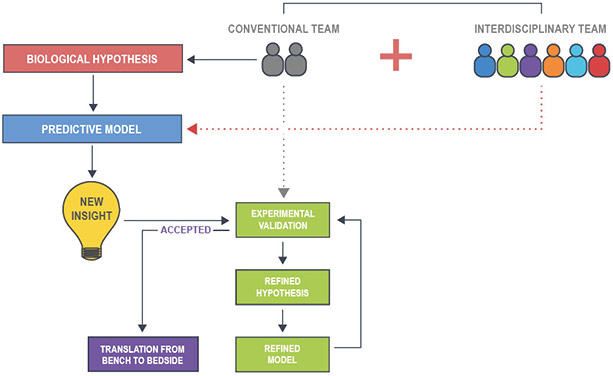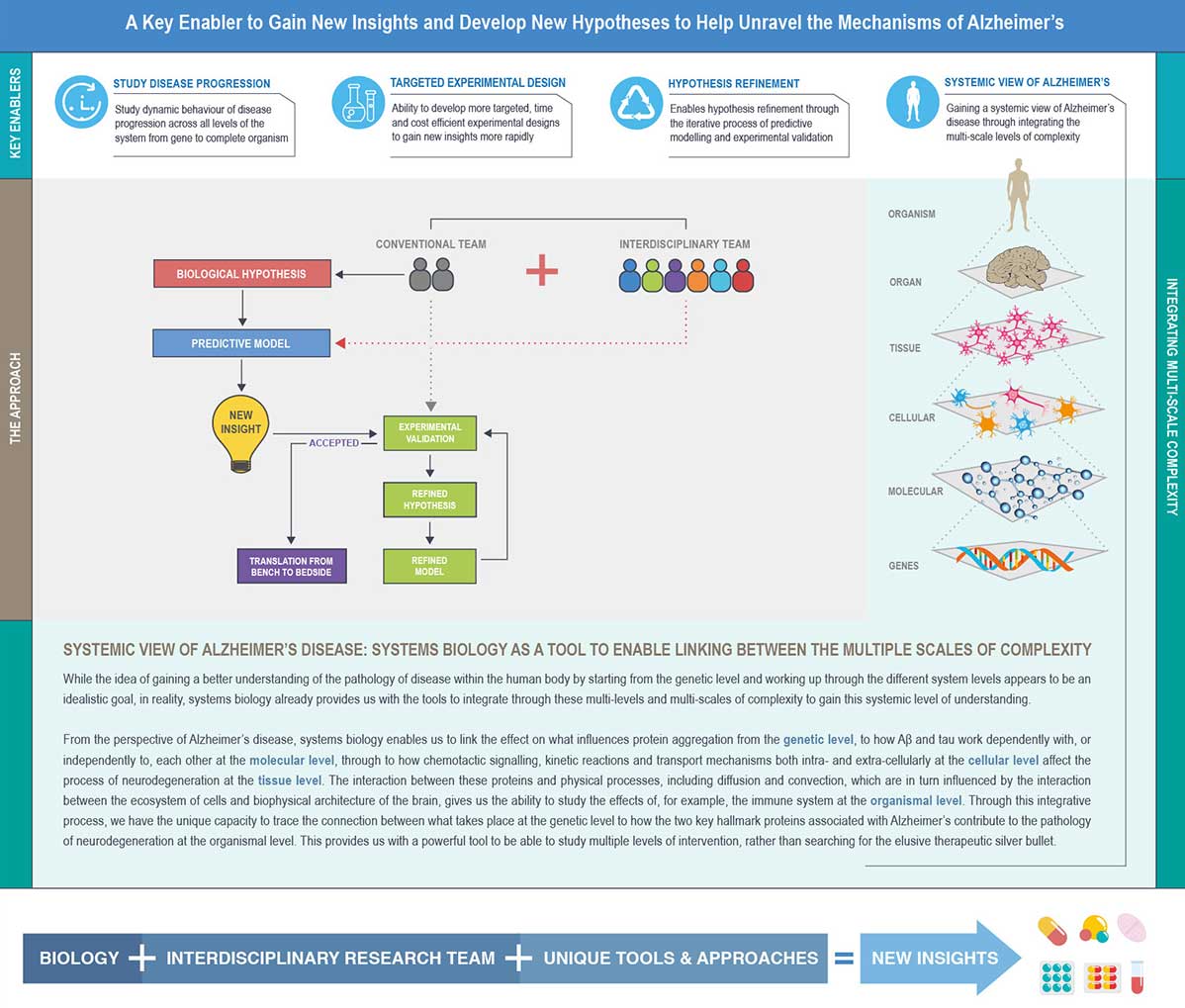
There is a well-recognised hierarchy of systems in life that are all inextricably linked to each other and to external controls. Take for example your own body. At this organism level it is a complex network of systems of organs and biological processes working. But zoom out, and you are part of a much larger system at the population level, when you consider all 7.6 billion of us.
Now dive back into your body and imagine your organs. They are each made up of their own functioning systems. Drill further down into the tissue and you will find an ever increasing network of systems at the cellular and molecular levels. Rather like a nested Russian doll, there is always more.
To assist studying even part of this overwhelming complexity of biological systems, it has been necessary in the past to rely on what is known as the ‘reductionist theory’. The theory basically reduces the whole of a biological system, the human body for example, to the sum of its constituent parts, which of course would be true in a mathematical sense.
In reality, the whole is more than the sum of its parts, a view taken by Greek philosopher and scientist, Aristotle, over 2,000 years ago. The overarching principle behind the science of systems biology is literally based on this holistic view. Through integrating methods and approaches from a range of far reaching disciplines, including mathematics, chemistry, physics, engineering and computer science, a holistic view of a biological system can be created by combining data from all the different system levels. This makes sense, because we are able to generate a much better picture of what is happening to the brain of someone living with Alzheimer’s by combining information from their DNA right up to their brain and whole body.
Most importantly, for the study of the onset and progression of Alzheimer’s, systems biology (the ‘integrative approach’ enables us to predict the behaviour of a system over time using data that has been collected over the same time scale.
In summary …
The systems approach enables us to study the progression of Alzheimer’s, observing what happens to our different brain cells, and how our whole body (or system) responds
Systems biology can help fast-track the path from cell and animal models to human trials of potential drug therapies through enabling more targetted experiments
Systems biology can help give us an holistic view of Alzheimer’s by integrating the multiple levels of complexity throughout the whole system
Overall, the integrative approach will help us identify multiple targets for combination therapies to enable prevention or personalised treatment to improve the quality of life for those living with Alzheimer’s.
Trans-disciplinary teams rock!
For the integrative approach to Alzheimer’s to be successful, it is important to challenge the traditional ways of thinking about the disease. Through bringing together scientists from a diverse range of disciplines, a strong multi-disciplinary team will bring unique perspectives to help better understand what causes Alzheimer’s so we are in a better position to develop ways to find a way to treat, cure and ultimately prevent it from occurring.
The integrative team can include methods and approaches from a far reaching range of disciplines including, but not limited to, maths, physics, chemistry, statistics, engineering and computer science.




